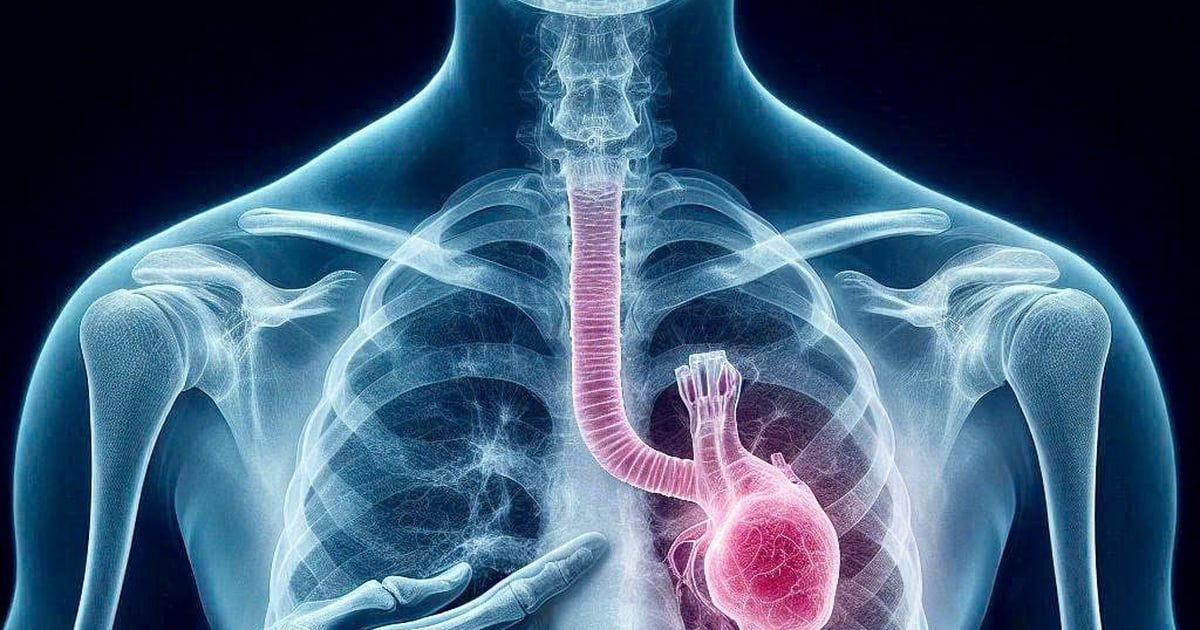Heart patients are often advised to get plenty of rest. So should they exercise?
In a study recently published in the medical journal PLOS One , scientists at the University of Trier (Germany), after surveying 185 heart failure patients, discovered that many people with heart failure are very afraid of exercise, according to the medical website Medical Express.

Science has proven the benefits of exercise for people with heart disease.
Dr. Heike Spaderna, professor of health psychology at the University of Trier (Germany), explains: When people with heart failure walk or climb stairs, they are out of breath and feel that their heart cannot bear it. Therefore, they avoid exercise.
But even healthy people can get winded when climbing stairs. Importantly, not all fatigue symptoms are caused by heart disease, says Dr. Heike Spaderna.
In addition to drug treatment, science has proven the benefits of exercise for heart disease. It can help people with heart failure have a better quality of life and live longer, says Dr. Heike Spaderna.
Effects of exercise on heart disease
Regular exercise is important for people with heart disease. It can strengthen the heart muscle and help control blood pressure and cholesterol levels, according to Medicine Plus.
Exercise can help strengthen your heart muscle. It can also help people with heart disease work harder without chest pain or other symptoms.
Exercise also helps lower blood pressure and cholesterol.
How should people with heart disease exercise?
People with heart disease should consult their doctor before starting an exercise program. They need to make sure the exercise is safe for them. This is especially important if they have chest pain or tightness, difficulty breathing; have diabetes; or have recently had a heart procedure or heart surgery.

People with heart disease can choose aerobic exercises such as walking, swimming, light jogging. Do it at least 3 - 4 times a week.
In addition, people with heart disease also need to pay attention when performing the following exercises:
Aerobic exercise . This type of exercise uses your heart and lungs for a long period of time. It also helps your heart use oxygen better and improves blood flow. You should work your heart a little harder each time, but don't overdo it.
Start slowly. Choose an aerobic exercise such as walking, swimming, light jogging, or cycling. Do it at least 3-4 times a week.
Always warm up and cool down. Always do 5 minutes of stretching or moving around to warm up your muscles and heart before exercising. Take time to cool down after exercising by slowing down.
Rest before you get too tired. If you feel tired or have any heart symptoms, stop.
Avoid exercising in extreme heat or cold. In hot weather, exercise in the morning or evening. Don't wear too many layers of clothing.
Pace yourself and know your limits. If exercise puts too much stress on your heart, you may experience pain and symptoms such as dizziness or lightheadedness, chest pain, irregular heartbeat, shortness of breath, and nausea.
It's important for heart patients to pay attention to warning signs; always carry nitroglycerin, an angina medication, if prescribed by a doctor; drink plenty of water and take frequent breaks during exercise, according to Medicine Plus.
Source: https://thanhnien.vn/nguoi-benh-tim-co-nen-tap-the-duc-185241010162239104.htm




![[Photo] Overcoming all difficulties, speeding up construction progress of Hoa Binh Hydropower Plant Expansion Project](https://vstatic.vietnam.vn/vietnam/resource/IMAGE/2025/4/12/bff04b551e98484c84d74c8faa3526e0)


![[Photo] Closing of the 11th Conference of the 13th Central Committee of the Communist Party of Vietnam](https://vstatic.vietnam.vn/vietnam/resource/IMAGE/2025/4/12/114b57fe6e9b4814a5ddfacf6dfe5b7f)














![[Video] First time in Vietnam: Successful implantation of 3rd generation partial artificial heart](https://vstatic.vietnam.vn/vietnam/resource/IMAGE/2025/4/12/8817412224094c68ba2c744b7bd5cfea)









































































Comment (0)